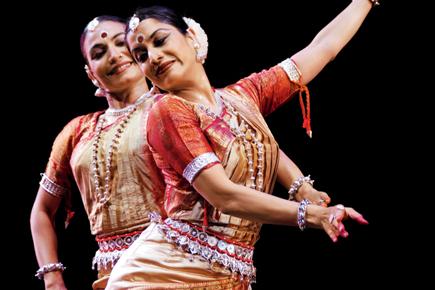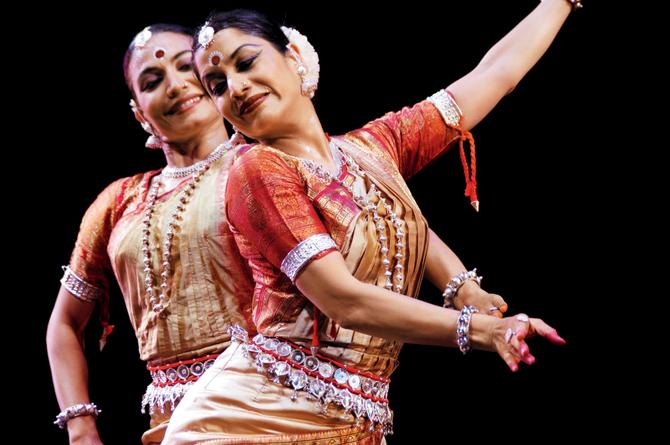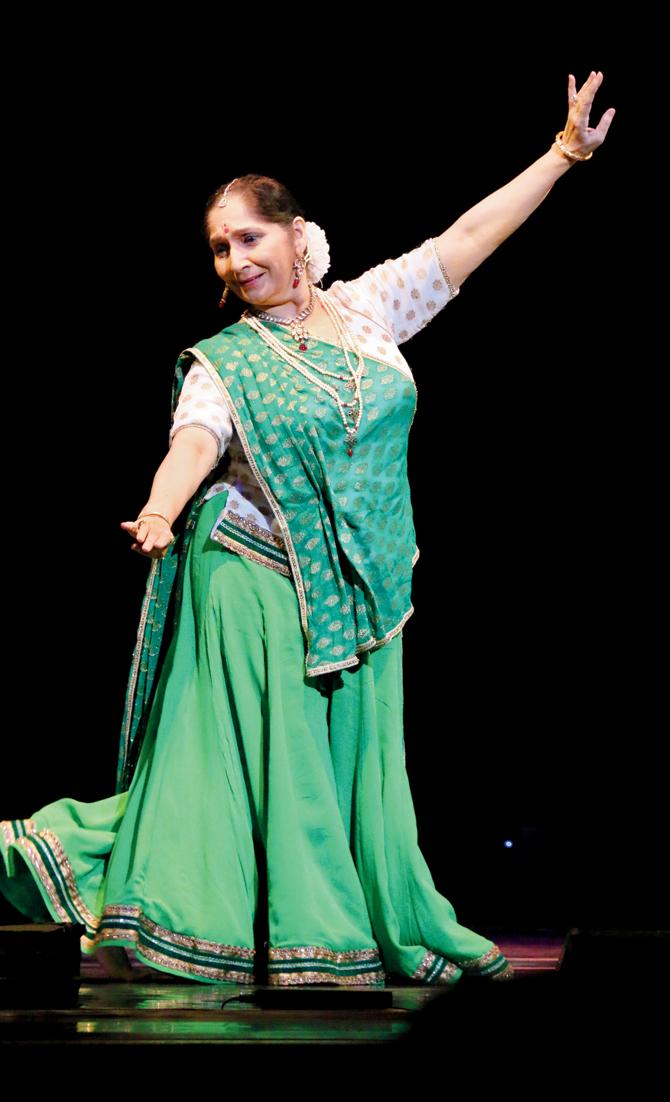In its 27th edition, the Pandit Durgalal Festival will see two leading dance schools premiere their new productions in Mumbai

Surupa Sen, Bijayini Satpathy, Uma Dogra

Surupa Sen and Bijayini Satpathy
ADVERTISEMENT
This weekend, the stage is set for a detour from the traditional repertoire of Odissi, and Kathak performed at varying tempos. Bengaluru-based Nrityagram, started by late Protima Gauri, will present their latest production, Åu00c2u009ariya (Sanskrit for the term Åu00c2u009ari) as part of the annual Pt Durgalal Festival to be held in the city. The production presents a selection of works created over a decade and showcases a creative journey in search of the goddess. The act is choreographed by artistic director and soloist Surupa Sen, who was the first student at Nrityagram, where she began her Odissi training with architect of the dance form, Guru Kelucharan Mahapatra.
"We have chosen a select few pieces that we have performed earlier and strung them together for this show. I have treated the production in a way that is different from the traditional repertoire where a certain linear pattern is followed to present pieces including abhinaya and moksha," says Sen. "There are a few abstract pieces and though we take the audience on a similar journey that typical Odissi repertoires do, we do it in way that was not traditionally handed down to us. The emotional and visual content are different," she adds.

Uma Dogra
Apart from Sen, the act will also star Bijayini Satpathy - whose research on the moving body in all its possibilities has resulted in a scientific body-training programme that is sourced from Yoga, Natyashastra, Kalaripayattu, Western fitness methods and Odissi body-conditioning exercises - and Pavithra Reddy, the first student to graduate from Nrityagram's rural outreach programme. Pandit Raghunath Panigrahi has conceptualised the music for the act, which has been performed in Chennai and Bengaluru earlier.
Started in 1991 by Kathak exponent Uma Dogra, the Pt Durgalal Festival is the dancer's tribute to her guru who was a doyen of the Jaipur Gharana. The festival is known to feature a variety of dance forms as well as music styles on one stage. It has travelled across India and witnessed performances by maestros including Pt Jasraj, Begum Parveen Sultana and Kelucharan Mohapatra in the past. "We didn't want the festival to focus on Kathak only. My guru ji taught me that it's most important to respect all kinds of dance forms. There is so much to learn from each form," says Dogra who is the senior-most Ganda Bandh Shahgird of the late Pt Durgalal, and has been awarded the Sangeet Natak Akademi Puraskar in 2014 and the Maharashtra Gaurav Samman in 2015.
The festival will also see an act by Dogra's institute, Sam Ved, which will open in the city for the first time. Titled Taal Chakra, the production will feature a five-minute solo by Dogra, with 11 of her senior-most disciples joining her later.
"The act looks at the evolution and growth of an artiste through different stages," shares Dogra. "I'm a pure Classical dancer and have not mixed styles or forms. This time, I'm using the Ghatam (a circular pot beaten with the hands as a percussion instrument in south Indian music) for certain beats. The instrument is not usually associated with Kathak. The music created by Vinayak Netke and Manoj Desai is also unusual and fresh," she adds. Laya or tempo is a crucial aspect of Kathak. In Taal Chakra, Dogra and her disciples play with the laya in Taal Dhamaar (14 beats), Taal Durga (13 beats), nine Matras and Teen Taal (16 beats). The presentation features varied aspects of Kathak performed in different beats, rhythms and speed.
 Subscribe today by clicking the link and stay updated with the latest news!" Click here!
Subscribe today by clicking the link and stay updated with the latest news!" Click here!






